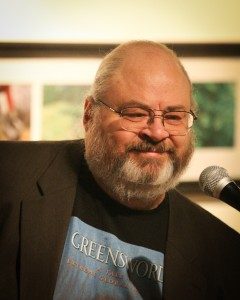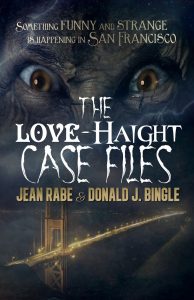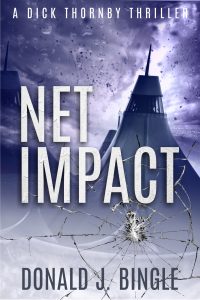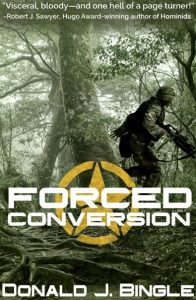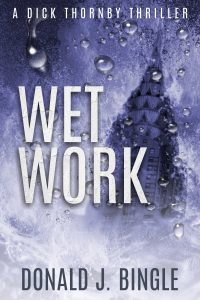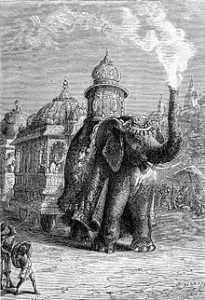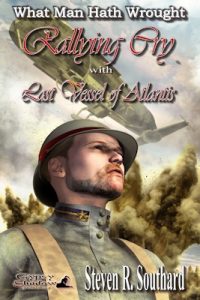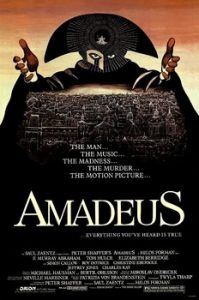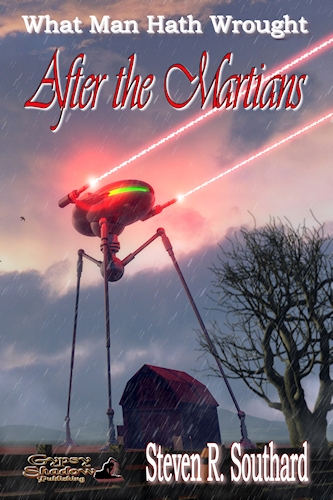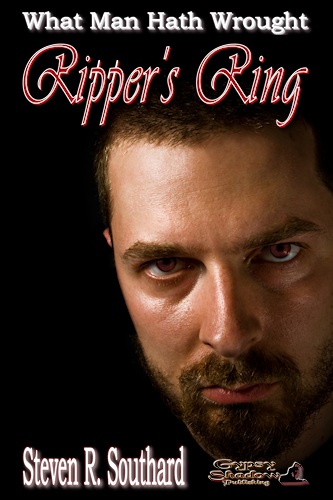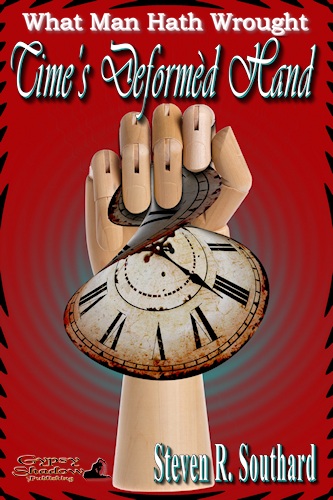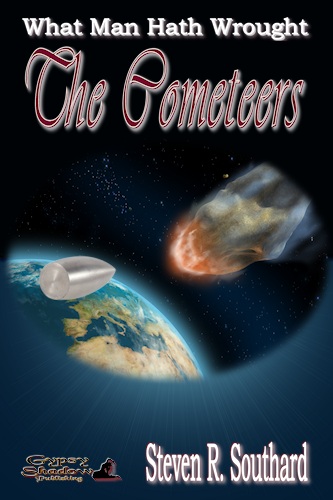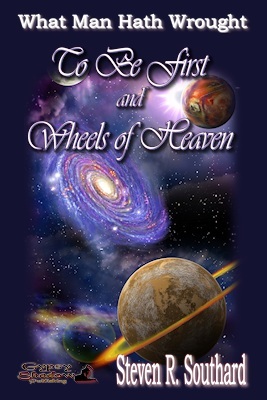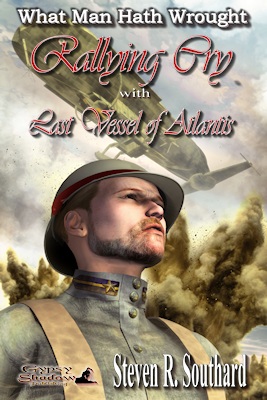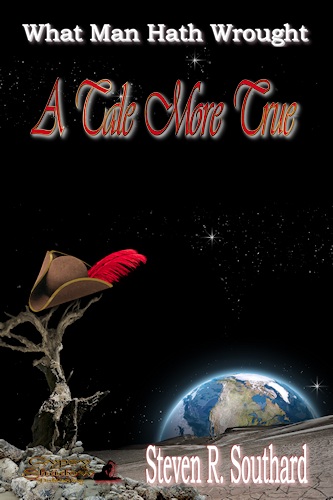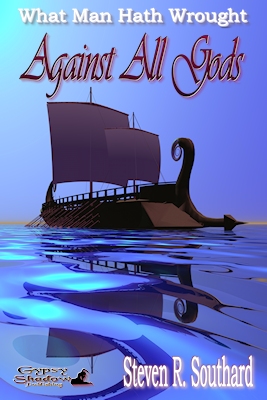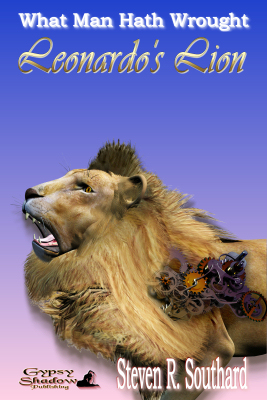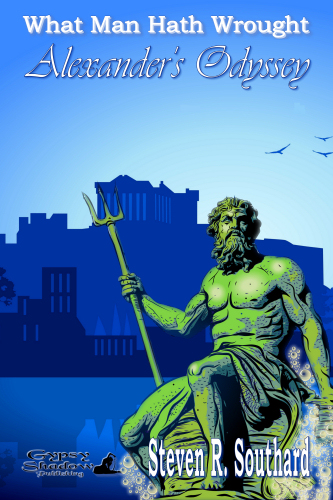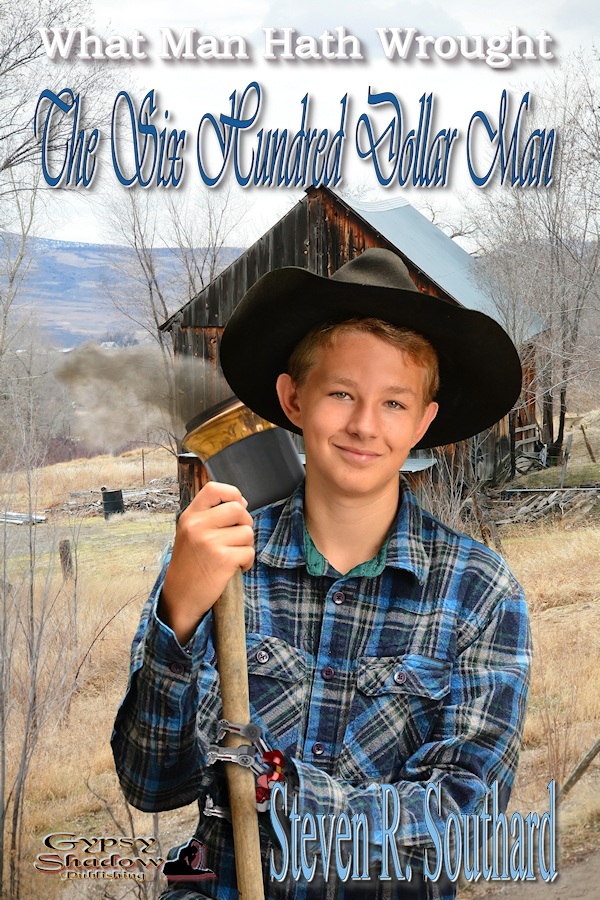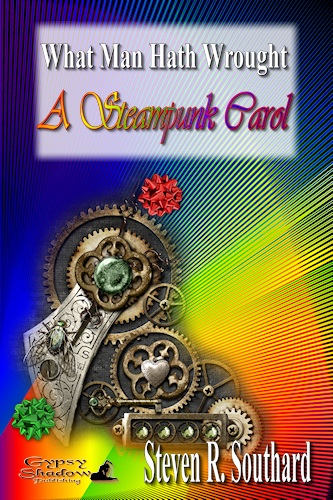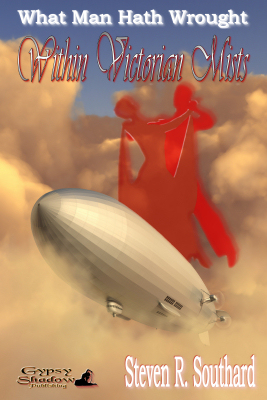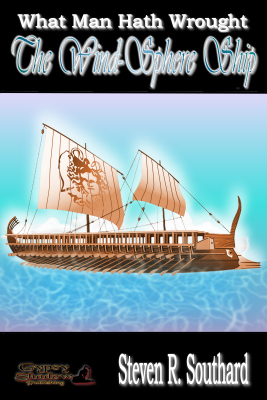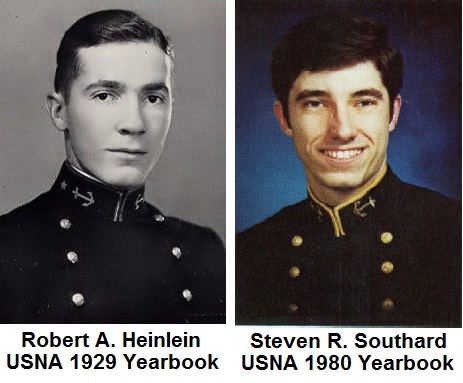You surfed to this site just in time. I’m about to interview author Julie Frost, who recently had a story published in The Gallery of Curiosities magazine, issue #3.
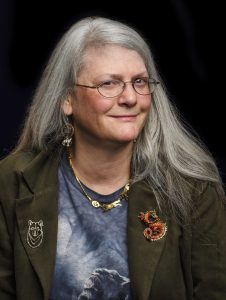 Julie Frost is the award-winning author of over forty short stories in all the speculative genres and combinations thereof. They have appeared in various venues, including Monster Hunter Files, StoryHack, the Planetary Fiction series, Tales of Ruma, and Writers of the Future. Her novel series, Pack Dynamics, is published by WordFire Press. She lives in Utah with her family—a herd of guinea pigs, three humans, a tripod calico cat, and a “kitten” who thinks she’s a warrior princess—and whines about writing, a lot, at her website.
Julie Frost is the award-winning author of over forty short stories in all the speculative genres and combinations thereof. They have appeared in various venues, including Monster Hunter Files, StoryHack, the Planetary Fiction series, Tales of Ruma, and Writers of the Future. Her novel series, Pack Dynamics, is published by WordFire Press. She lives in Utah with her family—a herd of guinea pigs, three humans, a tripod calico cat, and a “kitten” who thinks she’s a warrior princess—and whines about writing, a lot, at her website.
Now for the interview:
Poseidon’s Scribe: How did you get started writing? What prompted you?
Julie Frost: I wanted to be a writer in high school (SE Hinton was one of my early inspirations), but found that I never actually knew how to finish anything. So I took a 30-year hiatus (I don’t recommend this), and then started writing again when I watched Buffy the Vampire Slayer and Spike grabbed hold of my imagination. I wrote a ton of fanfic in the Buffy, Angel, and Firefly universes, along with a few others here and there. And then I saw a call for subs from a publication that wanted humor. So I scraped the serial numbers off one of my Firefly fics by condensing the crew, swapping some sexes, and adding aliens—and that was my first “original” story. That one never sold, and you can read it for free on my LiveJournal (it’s called “Illegal Beagles”), but I wrote four other stories in that ‘verse, and all of them found homes. One, “Affairs of Dragons,” was my first sale, and another, “Give Up the Ghost,” won 2nd place in the DragonComet Awards. I plan to write more.
P.S.: Who are some of your influences? What are a few of your favorite books?
J.F.: The first science fiction novel I remember picking up on my own was The Star Beast by Robert A. Heinlein because the cover was just fantastic. I’d read mostly dog and horse novels before that, but this book opened up a whole world of possibilities, and in short order I was devouring Larry Niven, Piers Anthony, Alan Dean Foster, Anne McCaffrey, Andre Norton, Gordon R. Dickson, and all the others everyone grew up reading back in the 70’s and 80’s. Nowadays, I lean heavily toward urban fantasy, and Jim Butcher is my favorite of favorites. But Carrie Vaughn’s “Kitty” series, Larry Correia’s Monster Hunter International (anything by Larry, really), and Rob Thurman’s Cal Leandros series are also among my favorites, along with Faith Hunter’s Jane Yellowrock and Elliott James’s Pax Arcana and David B. Coe’s Case Files of Justis Fearsson. I can’t pick a “few favorite books” because I tend toward series. That being said, Farley Mowat’s Never Cry Wolf was and is a huge influence on me.
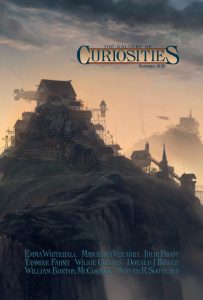 P.S.: In The Gallery of Curiosities, Summer 2018 edition, your story is “Doc Borden’s Hard-Luck Hoss.” Can you tell us about this story and how you came to write it?
P.S.: In The Gallery of Curiosities, Summer 2018 edition, your story is “Doc Borden’s Hard-Luck Hoss.” Can you tell us about this story and how you came to write it?
J.F.: It’s a weird western about a post-Civil War doctor who gets bitten by a rattlesnake in the desert, and is then saved by a unicorn. It came about as a title prompt from a contest in the Codex Writer’s group. I realized I hadn’t written very many stories with unicorns (one, actually), so I decided to rectify that. The title screamed “weird west,” and the story basically wrote itself.
P.S.: What are the easiest, and the most difficult, aspects of writing for you?
J.F.: Easiest, by far, is editing once I have a draft. Getting that draft, and the shape of the story, is actually pretty difficult for me, even with an outline. But once I know what the story wants to be, I can do the wordsmithing to make it spark off the page, and dig deeper into character and theme. I also have trouble with emotions and getting them across properly—and frequently need to be told to add emotional punch to my stories. Once someone tells me it’s missing, I slap my forehead and put it in.
P.S.: From your author photo, your degree in biology, your variety of pets and bird-related interests, it’s apparent you love animals. How does that come through in your fiction? Do you typically portray animals as good, evil, or neutral?
J.F.: I would say that probably 90% of my stories have some kind of animal in them. They’re generally either the good guys (my werewolf fiction tends to fall into this category, mostly), or the source of a series of humorous accidents—but not always. I’ve got one with demon civets, and one with a plush bunny run murderously amok, and another with zombie rabbits, and another with killer robot bunnies (you might be sensing a theme here, but I actually like bunnies. Really!). My mad scientist creates a flying weasel for a dying little girl, and wackiness ensues. I wrote one story where a guy is bitten by a werewolf overnight and comes home to find his beloved Irish setter is terrified of him. In another, a group of adventurers need to leave a talking cat in a dragon’s den. I’ve got a time-traveling wizard with a weasel familiar, looking for a unicorn in the wilds of Memphis, Tennessee. My spaceship captain doesn’t like transporting live cargo, but he gets roped into all kinds of ridiculous adventures with beagles and bears and dragons and meerkats.
P.S.: In what way is your fiction different from that of other authors in your genre?
J.F.: I personally think I am exceptionally good at chasing my characters up a tree and throwing rocks at them, and getting them to the point of throwing boulders back. I want to be Jim Butcher when I grow up, so I strive for that level of OH HOLY CRAP WHAT DID YOU JUST DO, along with the emotional engagement. Whether I actually hit it or not, I will leave up to my readers.
P.S.: Werewolves and vampires figure prominently in your stories. What is it about them that intrigues you?
J.F.: With the vampires, it’s the power dynamic and what they do with it—but they don’t figure as prominently in my stories as you’d expect, since in most urban fantasy they kind of go together with the werewolves. I think I’ve used vampires all of three times in my fiction, out of over sixty shorts and two novels.
The werewolves, though… I call myself “That Werewolf Writer” because those guys grabbed me by the imagination and just won’t let go. I think it gets back to my love of animals and wondering what it would be like to be one part-time. And there’s also the fact that you can do nearly anything with them, from the wolf-man form all the way to the full-wolf form, from someone who is still them as the animal to someone who completely freaking loses it over the full moon, and all the shades and gradients between. And then there’s the family relationships to explore, and the pack structure, and how the wolf integrates with the human and makes him more (or less) than the sum of his parts.
P.S.: A large percentage of your stories feature male protagonists. What challenges have you faced with writing in a convincing way about a male lead?
J.F.: Honestly, it comes naturally—I have a harder time writing female protagonists than male ones, which is a source of considerable bemusement to people who don’t actually know me. I think it goes back to my childhood reading preferences; I loved the Hardy Boys, but Nancy Drew left me cold. Most of what I read as a kid had male leads—there are a lot of “boy and his dog” stories, but not many with girls, and I gravitated toward westerns with the horse stories, which had lots of cowboys but a dearth of cowgirls. Ditto the science fiction and fantasy I read—and it still holds true today; I prefer male protags in my recreational fiction. So when I start thinking about a story, I default to a male protag because it got wired into me from a young age.
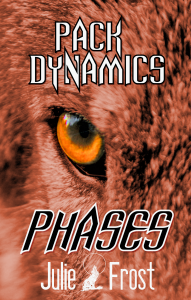 P.S.: From your LiveJournal entries, it appears you’re working on the cover to Pack Dynamics: Phases. Is this a sequel to your 2015 novel Pack Dynamics? Please tell us about the protagonist of Phases, and when the book might be available.
P.S.: From your LiveJournal entries, it appears you’re working on the cover to Pack Dynamics: Phases. Is this a sequel to your 2015 novel Pack Dynamics? Please tell us about the protagonist of Phases, and when the book might be available.
J.F.: Phases is actually a pair of novellas. One (Piles of Cash and Killer Benefits) is a direct sequel to 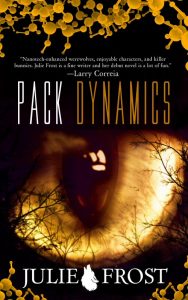 Pack Dynamics, and picks up my mad scientist Alex Jarrett and his werewolf personal assistant Megan Graham—who has been hiding her condition from him for six years—on a trip to Athens which goes disastrously badly. It swaps POVs back and forth between Alex and Megan. Funnily enough, I actually wrote this story a couple of years before Pack Dynamics, and the novel came about because I was casting around for a way to not write fanfic anymore (a long story involving a mashup of “Iron Man” and “Kiss Kiss Bang Bang”—don’t ask, but if you haven’t seen “Kiss Kiss Bang Bang,” hie thee to whatever service has it streaming and watch it now), and I decided to drop those characters into that plot.
Pack Dynamics, and picks up my mad scientist Alex Jarrett and his werewolf personal assistant Megan Graham—who has been hiding her condition from him for six years—on a trip to Athens which goes disastrously badly. It swaps POVs back and forth between Alex and Megan. Funnily enough, I actually wrote this story a couple of years before Pack Dynamics, and the novel came about because I was casting around for a way to not write fanfic anymore (a long story involving a mashup of “Iron Man” and “Kiss Kiss Bang Bang”—don’t ask, but if you haven’t seen “Kiss Kiss Bang Bang,” hie thee to whatever service has it streaming and watch it now), and I decided to drop those characters into that plot.
The other (In the Multitude of Mercy) is a prequel of sorts. There’s a new werewolf character in Pack Dynamics: A Price to Pay (coming soon from WordFire Press!) named Noah Emerson, who is fixated on his vengeance-obsessed alpha in a not-necessarily-healthy way, and I decided he needed his own story to explain what shaped him and why he’s sticking it out with this guy when it’s gone completely to Hades in a handbasket.
I’m waiting on a proof copy from CreateSpace as of this writing; if I’m happy with it, then I’ll pull the trigger, and it will be available in a dead tree version very soon (say, around the beginning of August), and an ebook soon after that.
P.S.: What is your current work in progress? Would you mind telling us a little about it?
J.F.: My other fiction weakness is angels and demons, but I have rather specific standards for what I can suspend my actual beliefs for. In my current WiP, I have taken the shoulder-angel/shoulder-demon trope and run it headfirst into the Wall of Wrong. My shoulder angel protagonist is Nachi, a Guardian Angel to serial killers, which means he gets to attempt to be the conscience of a killer—and he’s never had a single success in turning them from that path, in thousands of years. It’s… beginning to wear on him. And his current Charge is his most difficult yet, because this guy finds a grimoire with a Free!Demon!Inside!, who helps him turn simple acts of murder into works of art in exchange for help getting free from the book. Nachi is outnumbered and out-gunned, and plagued by his own self-doubts, but he has to stop this guy before he unleashes a literal Hell on Earth. Fortunately, his opposite number on the left shoulder doesn’t much care for the grimoire demon (surprise!—there are factions in Hell), but its an uneasy alliance at best.
Poseidon’s Scribe: What advice can you offer aspiring writers?
Julie Frost: First advice: grow rhino skin. This business—and it is a business—can be absolutely brutal, and it seems there’s a new kerfuffle on a daily basis. Don’t be a doormat, but don’t be a whiner either. Bad reviews come with the territory; let them roll off your back and resist the urge to answer them (except in locked spaces because venting is normal). That being said, learn to take criticism with humility. If you ask for someone to give you their honest opinion, and they tell you that your baby is ugly, well… they might be right, especially in the drafting stage of a story. Listen, internalize it, and fix the issues before you send your baby out into the world—because readers and editors won’t be nearly so gentle as your betas. That being said, if you honestly disagree with the advice you’re being given, or if someone wants you to write a completely different story than what you’ve got, then you can ignore it. It’s your story. Finding the balance is the challenge, and it’s an ongoing learning curve.
Second advice: Never give up; never surrender. I won Writers of the Future in my 50’s, on my 29th entry, with a werewolf story—and Dave Farland, the coordinating judge of WotF, famously hates werewolf stories. Find that Thing that you love, and write it with all your soul. If you love what you write, then your target audience will too. Don’t let anyone tell you that you’re too young, too old, or too anything to be an author. The only barriers anymore are the ones you put up yourself. Set your mind and your keyboard free, and go forth and write your passion—no matter what it is.
Thank you, Julie. My readers can find out more about Julie and her stories at her website/blog, on Facebook, Twitter, or at her Amazon author page.
Poseidon’s Scribe
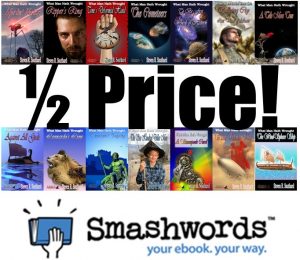 You thought about buying one or two books.
You thought about buying one or two books.


 P.S.: From your
P.S.: From your 
